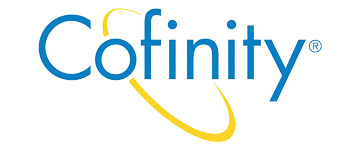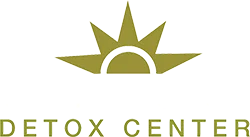Comprehensive Dual Diagnosis Treatment in Tennessee
Struggling with addiction can profoundly affect every aspect of a person’s life, from close relationships to physical health. Often, addiction doesn’t exist in isolation—it frequently co-occurs with mental health conditions. Dual diagnosis treatment centers in Tennessee specialize in treating both Substance Use Disorder (SUD) and mental health conditions simultaneously, leading to better outcomes for each disorder. Addressing both issues at the same time is crucial because untreated mental health problems can worsen addiction, and substance abuse can exacerbate mental health symptoms.
What to Expect at Our Dual Diagnosis Treatment Center in Tennessee
At our dual diagnosis treatment center, we believe in treating the whole person. Clients can expect comprehensive plans that address all areas of their health and well-being. Understanding that poor mental health and addiction are interconnected and can impact various facets of life, our approach is holistic and person-centered. We provide compassionate, expert care designed to manage the symptoms of both mental health conditions and substance use disorders.
Signs and Symptoms of a Dual Diagnosis Disorder
According to MedlinePlus, “about half of people who have a mental disorder will also have a substance use disorder at some point in their lives and vice versa.” These conditions often co-occur because they share similar underlying causes, and each can influence the other. Mental health and substance use disorders have overlapping signs and symptoms, which may include:
- Changes in sleeping or eating habits
- Significant mood swings
- Engaging in reckless behaviors
- Overwhelming feelings of anxiety or guilt
- Difficulty experiencing pleasure
- Trouble concentrating and making decisions
- Feelings of hopelessness and worthlessness
- Suicidal thoughts or behaviors
These symptoms are always a cause for concern. While such signs can result from various factors, their presence alongside substance abuse may indicate a dual diagnosis disorder. Recognizing these symptoms early is essential for seeking appropriate treatment.
Most Common Dual Diagnosis Disorders
Individuals with mental health disorders may turn to substances as a way to self-medicate their symptoms. Depending on the nature of their mental health condition, they might gravitate toward substances that alter or mask their symptoms. Additionally, some people misuse prescribed medications for unintended effects, such as taking higher doses to achieve euphoria.
Some of the most common mental health disorders that co-occur with substance abuse include:
Mood Disorders
- Bipolar Disorder
- Depression
- Seasonal Affective Disorder (SAD)
Anxiety Disorders
- Social Anxiety
- Phobias
- Generalized Anxiety Disorder (GAD)
- Obsessive-Compulsive Disorder (OCD)
Other Disorders
- Borderline Personality Disorder (BPD)
- Post-Traumatic Stress Disorder (PTSD)
- Schizophrenia and Schizoaffective Disorder
Often, substance abuse can mask these symptoms to the extent that a person might not realize they have a mental health disorder until they begin treatment. During detoxification, as substances leave the body, mental health symptoms may become more apparent. This highlights the importance of seeking dual diagnosis treatment when addressing substance use disorders.
Call (423) 455-9887
Insurance Can Cover Up To 100%
We Accept Most Insurance. Please Note We Are Not Affiliated or Endorsed By Insurance Companies.
How Are Dual Diagnosis Disorders Treated?
Effective treatment for dual diagnosis disorders requires an integrated approach that addresses both the mental health condition and the substance use disorder simultaneously. At our dual diagnosis treatment center in Tennessee, we offer a variety of treatment options tailored to each client’s unique needs.
Most treatment plans for a dual diagnosis disorder include:
- Individual Counseling and Therapy: One-on-one sessions with a therapist to explore personal challenges and develop coping strategies.
- Group Therapy Sessions: Supportive group environments where clients can share experiences and learn from others facing similar challenges.
- Life Skills Building: Programs to help clients develop practical skills for daily living and managing stress.
- Healthy Coping Mechanisms: Learning effective ways to handle stress and emotional triggers without resorting to substance use.
- Medication Management: Prescribing medications to alleviate withdrawal symptoms and manage mental health conditions.
- Peer Recovery Groups: Participation in support groups that foster community and ongoing encouragement.
- Structured Routine Creation: Establishing daily routines to promote stability and predictability in recovery.
- Nutrition and Exercise Plans: Emphasizing physical health as a component of overall well-being.
- Family Therapy: Involving loved ones in the treatment process to repair relationships and build support systems.
- Detoxification Services: Medical supervision during the withdrawal phase to ensure safety and comfort.
Treatment involves collaboration among various healthcare professionals, including psychiatrists, psychologists, counselors, and medical staff, ensuring that each client receives comprehensive care addressing all aspects of their condition.
Benefits of a Dual Diagnosis Treatment Center in Tennessee
Choosing a specialized dual diagnosis treatment center offers several advantages:
- Improved Treatment Outcomes: Addressing both disorders simultaneously leads to better recovery rates for each condition.
- Enhanced Self-Esteem and Confidence: Clients gain a better understanding of themselves and their abilities to manage their conditions.
- Understanding Underlying Causes: Exploring the root causes of addiction helps prevent relapse.
- Relapse Prevention Skills: Developing strategies to recognize and cope with triggers reduces the likelihood of returning to substance use.
- Healthy Coping Mechanisms: Learning alternative ways to handle stress and emotional challenges.
- Peer Support: Building connections with others who understand the journey fosters a sense of belonging.
- Natural Support Systems: Strengthening relationships with family and friends who support recovery.
- Improved Relationships: Healing strained relationships with loved ones through family therapy and open communication.
By focusing on both mental health and addiction, clients are better equipped to achieve lasting recovery and improve their overall quality of life.
Services Offered at Chattanooga Detox Center
At Chattanooga Detox Center, we are committed to providing comprehensive care for individuals with dual diagnosis disorders. Our services include:
- Individual and Group Therapy: Personalized counseling and supportive group sessions.
- Holistic Therapy: Integrative approaches that address mind, body, and spirit.
- Family Involvement: Encouraging family participation to strengthen support networks.
- Medication-Assisted Treatment (MAT): Using medications to support recovery and manage symptoms.
- Music Therapy: Utilizing the therapeutic benefits of music for healing.
- Nutritional Guidance: Promoting healthy eating habits as part of overall wellness.
- Exercise Planning: Incorporating physical activity to enhance mental and physical health.
- Referrals and Connections: Linking clients to specialists and resources for continued care.
- Aftercare Planning: Developing plans for ongoing support after treatment completion.
Our multidisciplinary team works collaboratively to ensure that each client receives personalized care tailored to their specific needs.








 Gupta Brings Over A Decade Of Experience To Chattanooga Detox Center. Dr. Gupta Specializes In Treating Adults With Substance Use And Psychiatric Disorders. His Extensive Clinical Experience Includes Medication-Assisted Treatment, Medical-Surgical Consultation And Psychiatric Stabilization In Acute Settings. Dr. Gupta Completed His General Psychiatry Residency At The University Of Connecticut Followed By A Fellowship In Addiction Psychiatry At Emory University. He Is Double Board-Certified In Both Of These Specialties. Dr. Gupta Is Passionate About His Work In Substance Abuse And Is An Advocate For Reducing The Stigma Surrounding Mental Illness.
Gupta Brings Over A Decade Of Experience To Chattanooga Detox Center. Dr. Gupta Specializes In Treating Adults With Substance Use And Psychiatric Disorders. His Extensive Clinical Experience Includes Medication-Assisted Treatment, Medical-Surgical Consultation And Psychiatric Stabilization In Acute Settings. Dr. Gupta Completed His General Psychiatry Residency At The University Of Connecticut Followed By A Fellowship In Addiction Psychiatry At Emory University. He Is Double Board-Certified In Both Of These Specialties. Dr. Gupta Is Passionate About His Work In Substance Abuse And Is An Advocate For Reducing The Stigma Surrounding Mental Illness. President Alec Pagliarulo has spent his entire career working in the addiction and mental health community. He has worked in various roles, including benefits analyst, admissions coordinator, and business development specialist. Alec is passionate about providing the best possible care to individuals struggling to overcome addiction. He aims to create positive recovery experiences, including programs rooted in integrity that pave a path for long-term growth.
President Alec Pagliarulo has spent his entire career working in the addiction and mental health community. He has worked in various roles, including benefits analyst, admissions coordinator, and business development specialist. Alec is passionate about providing the best possible care to individuals struggling to overcome addiction. He aims to create positive recovery experiences, including programs rooted in integrity that pave a path for long-term growth. Carter is a successful real estate and private equity investor. Prior to founding Chattanooga Detox Center, Carter worked in insurance brokerage in New York City and as a real estate private equity acquisitions specialist in Atlanta. He completed his undergraduate degree at Washington & Lee University and has an MBA from the UNC Keenan-Flagler Business School.
Carter is a successful real estate and private equity investor. Prior to founding Chattanooga Detox Center, Carter worked in insurance brokerage in New York City and as a real estate private equity acquisitions specialist in Atlanta. He completed his undergraduate degree at Washington & Lee University and has an MBA from the UNC Keenan-Flagler Business School.